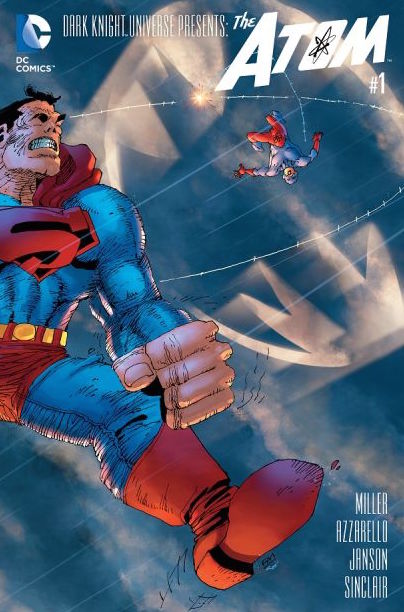

1. At the risk of showing my ignorance, I’ve always thought of Elle Magazine as a fashion/life-style magazine rather than an outlet for serious writing. The kind of publication that would run a headline like “Losing My Husband―And Finding Him Again Through A Medium”–but not the kind where said article would be half as fascinating or, well, moving as it turned out to be. Indeed, Lisa Chase does something genuinely brave: she recounts, with journalistic skill and precision, a life-changing experience for which she has no reasonable explanation. Something that doesn’t fit–remotely–into any of the narratives one encounters in today’s elite, bi-coastal circles, yet something she cannot deny. All I’ll tell you is that it has to do with her recently deceased husband. The whole thing is remarkable for a number of reasons, not the least of which being what she mentions at the beginning of her piece:
Our navel-gazing, technology-is-God culture doesn’t fundamentally believe in anything bigger than ourselves (What could be bigger?), we don’t have any rules of the road to evaluate what we hear and who is delivering our para-, meta-messages.
 Intriguing, right? You’ll have to read the whole article to find out what exactly happened to her. Suffice it to say, her story is challenging, even for those of us who claim to make allowances for the supernatural.
Intriguing, right? You’ll have to read the whole article to find out what exactly happened to her. Suffice it to say, her story is challenging, even for those of us who claim to make allowances for the supernatural.
Anyway, Chase’s testimony provided the impetus for a terrific column from Ross Douthat, “Ghosts in a Secular Age”. The title is probably a giveaway (yes, it does feature some references to philosopher Charles Taylor). More than that, though, I found it to be helpful in addressing certain questions that pop up in our work. What about our current context makes it so difficult to bridge the gap between the innumerable unknowns we deal with every day (in every way) and the materialistic explanations we swallow so readily/automatically? How do we get around the cognitive dissonance of an increasingly scientistic, or Martian, outlook? Here’s Douthat:
Under secularism, most people who see a ghost or have a vision or otherwise step into the supernatural are still likely to believe in the essential reality of their encounter with the otherworldly or transcendent; they’re just schooled to isolate the experience, to embrace it as an interesting (and often hopeful) mystery without letting it call them to the larger conversion of life that most religious traditions claim that the capital-S Supernatural asks of us in return.
What secularism really teaches people, in this interpretation, isn’t that spiritual realities don’t exist or that spiritual experiences are unreal. It just privatizes the spiritual, in a kind of theological/sociological extension of church-state separation, and discourages people from organizing either intellectual systems (those are for scientists) or communities of purpose (that’s what politics is for) around their sense, or direct experience, that Something More exists…
My suspicion is that eventually someone will figure out a new or refashioned or revivalist message that resonates with the fallen-away but still spiritually-inclined; man is a religious animal, nature abhors a vacuum, people want community and common purpose, and above all people keep having metaphysical experiences and it’s only human to want to make sense out of them and not just compartmentalize them away from the remainder of your life.
2. Speaking of secular religiosity, John Tierney had the courage to gore a beloved sacred cow last weekend when he decried “The Reign of Recycling” in The NY Times. The article presents quite a compelling case for the wastefulness of (most) recycling, suggesting that the practice’s popularity has more to do with piety and self-justification than conservation. Oy vey:
[If recycling usually doesn’t make financial or environmental sense] then why do so many public officials keep vowing to do more of it? Special-interest politics is one reason — pressure from green groups — but it’s also because recycling intuitively appeals to many voters: It makes people feel virtuous, especially affluent people who feel guilty about their enormous environmental footprint. It is less an ethical activity than a religious ritual, like the ones performed by Catholics to obtain indulgences for their sins.
Religious rituals don’t need any practical justification for the believers who perform them voluntarily. But many recyclers want more than just the freedom to practice their religion. They want to make these rituals mandatory for everyone else, too, with stiff fines for sinners who don’t sort properly.
3. With The Peanuts Movie less than a month away, I commend to you Sarah Boxer’s long-read on “The Exemplary Narcissism of Snoopy” for The Atlantic, which doubles as a defacto history of the groundbreaking strip. A history, which, for many, hinges on how you understand the Snoopy character. Strong opinions on all side of the doghouse, as it were:
While Charlie Brown was made to be buffeted by other personalities and cared very much what others thought of him, Snoopy’s soul is all about self-invention—which can be seen as delusional self-love. This new Snoopy, his detractors felt, had no room for empathy. his critics, part of what’s appalling about Snoopy is the idea that it’s possible to create any self-image one wants—in particular, the profile of someone with tons of friends and accomplishments—and sell that image to the world…Snoopy, viewed this way, is the very essence of selfie culture, of Facebook culture. He’s the kind of creature who would travel the world only in order to take his own picture and share it with everyone, to enhance his social image. He’s a braggart. Unlike Charlie Brown, who is alienated (and knows he’s alienated), Snoopy is alienating (and totally fails to recognize it). He believes that he is what he’s been selling to the world. Snoopy is “so self-involved,” Mendelsohn writes, “he doesn’t even realize he’s not human.”…
Artwork for the upcoming Dark Knight III continues to trickle out. One day I may have to subject the Mocking-orbit to my theory about DKII being the greatest comic book achievement of the last 20 years.
Snoopy’s critics are wrong, and so are readers who think that Snoopy actually believes his self-delusions. Snoopy may be shallow in his way, but he’s also deep, and in the end deeply alone, as deeply alone as Charlie Brown is. Grand though his flights are, many of them end with his realizing that he’s tired and cold and lonely and that it’s suppertime. As Schulz noted on The Today Show when he announced his retirement, in December 1999: “Snoopy likes to think that he’s this independent dog who does all of these things and leads his own life, but he always makes sure that he never gets too far from that supper dish.” He has animal needs, and he knows it, which makes him, in a word, human.
4. Humor: While McSweeneys’ “A Guide to all the Jesuses” may not deliver 100% on the promise of its title, it’s still pretty clever. Better is Michael Harriot’s “The Caucasion’s Guide to Black Churches” that went up on Deadspin, which manages to strike a rare balance of funny, affectionate, and genuinely informative. Elsewhere, with the shudder-inducing news of the Peeple app still ringing in our ears (see: John Oliver’s masterful tirade), Quartz posted a laugh-or-you’ll-cry report that “All Chinese citizens now have a score based on how well we live, and mine sucks”. But nothing made me laugh out loud harder than NPR’s report about the Renoir-haters picketing the Boston Museum of Fine Arts. Key quote from the head protestor:
“At the museum where we protested, every painting including the Impressionists’ were breathtakingly beautiful — except for Renoir’s.”

5. On the more satirical side of the coin, major kudos go to Donovan Riley, who recently embarked on an updated and Luther-ized version of C.S. Lewis’s The Screwtape Letters called “The Withertongue Emails”. The project, which takes C.F. Walther’s Law and Gospel lectures as its blueprint, will be posted serially on Christ Hold Fast. The first two installments are out, and they’re great.
6. Over at Medium, Kel Campbell takes a dive into the double-bind cruelty of cultural imperatives re: body image in “It’s None of Your Business What People Put in Their Mouths”, ht DD.
In college, I stuck to a strict diet that allowed me to lose the weight and bid adieu to [the childhood nickname] Fat Girl, including the never-ending pile of judgement she had to put up with, both internally and externally.
Despite the positive changes I’d made to feel better about myself, an insidious new kind of disdain snuck in. When I’d wave off dessert or try to limit how much I ate, people would roll their eyes or tell me to live a little. People seemed to be personally offended that I didn’t want to eat late night pizza. I couldn’t believe it. When I didn’t monitor my diet, society gave me shit for the way my body responded. When I did watch my weight, society still gave me shit.
7. It was not a boring week for those tracking the national bewilderment re: masculinity. First, there was The NY Times’ head-scratching list of “27 Ways To Be a Modern Man“, which made very little sense outside of its function as a conversation starter, i.e. impossible to tell how seriously it was intended. Slate responded as Slate tends to respond, though in this case the contrarianism was well-founded. But the list obscured the more interesting entry in the Men’s Style section of The Times, namely, the piece on beard transplants, which have become exponentially more common than they were five years ago (directly correlated, one presumes, to the wider culture’s skepticism about non-biological expressions of maleness). Speaking of beard transplants, these guys won’t be getting them anytime soon. Gott im Himmel!

8. Social Science post of the week (or should I say Best Dispatch from the Needless Rationalization Department): “Watching TV Makes You a Better Person“! Explains a lot…
9. On that note, a ridiculously sympathetic discussion of law and (the absence of) grace in Sons of Anarchy appeared on The Living Church, courtesy of Fr. Jonathan Mitchican–even Flannery makes a cameo. It’s so good that I’m tempted to ask if we can syndicate it. Also, very excited about the Fargo premiere on Monday, especially after reading Christopher Orr’s rave on The Atlantic.
Strays
- Rick Moranis breaks his silence (about his long silence). Surprisingly poignant.
- Thrillist ran a lengthy Oral History of Nickelodeon’s Double Dare, and it’s as delightful as you might hope.
- MorphCostumes ranked literature’s scariest monsters and pretty much nailed it. I for one still have nightmares about Pennywise.
- You’ve gotta hand it to Miley: she commands attention.
- Finally, happy 75th, John Lennon:
https://www.youtube.com/watch?v=WSnORyfmHnM

COMMENTS
2 responses to “Another Week Ends: Secular Ghosts, Recycled Piety, Narcissistic Beagles, Withertongues, Black Churches, and Lennon 75”
Leave a Reply














RE: #9 — the answer to Father Mitchican’s article is, of course, “Justified”, which doesn’t get much Mockingbird love 🙂
hey – we love Justified! That finale… Man oh man.
https://mbird.mystagingwebsite.com/tag/justified/